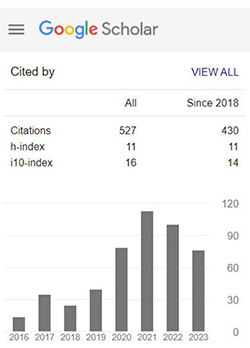SEXUALITY AND SEXUAL POLITICS IN CONTEMPORARY INDONESIA
DOI:
https://doi.org/10.26593/mel.v24i2.948.187-204Abstrak
The post-Suharto period was expected to establish Indonesiaas a democracy, committed to equality between citizens and
human rights, but respect for women's equal rights, for example
the freedom to terminate a pregnancy, freedom of expression,
freedom from polygamy, has not occurred. Indonesia has
enjoyed some expanded political liberties, but the civil liberties
of the Indonesian people are not protected. Why has
democracy failed to deliver civil liberties in Indonesia despite its
success in opening up political liberties? Why has democracy
strengthened the ties between the government and dominant
religious institutions? These are the questions I address. In the
case of Indonesia, the transition to democracy has not
necessarily led to the liberalization concerning laws on gender
and freedom of the individual. In fact it has led to the opposite.
This is true in the case of women's sexual liberation, which is
condemned and restricted both by the democratic elected
government and the dominant religious institutions.
##submission.downloads##
Terbitan
Bagian
Articles
Lisensi
Hak Cipta (c) 1970 Gadis Arivia

Artikel ini berlisensi Creative Commons Attribution-NonCommercial 4.0 International License.
MELINTAS applies the Creative Commons Attribution (CC BY NC) license to articles and other works we publish. If you submit your paper for publication by MELINTAS, you agree to have the CC BY NC license applied to your work.





